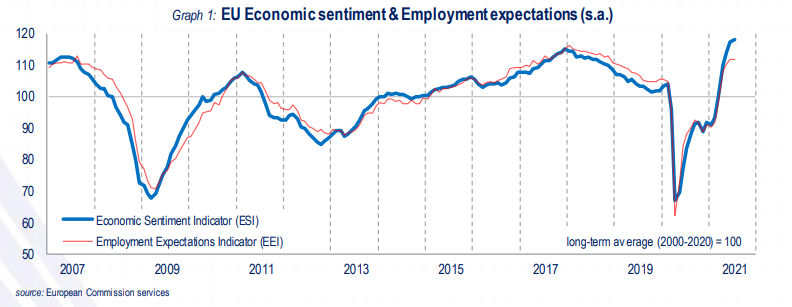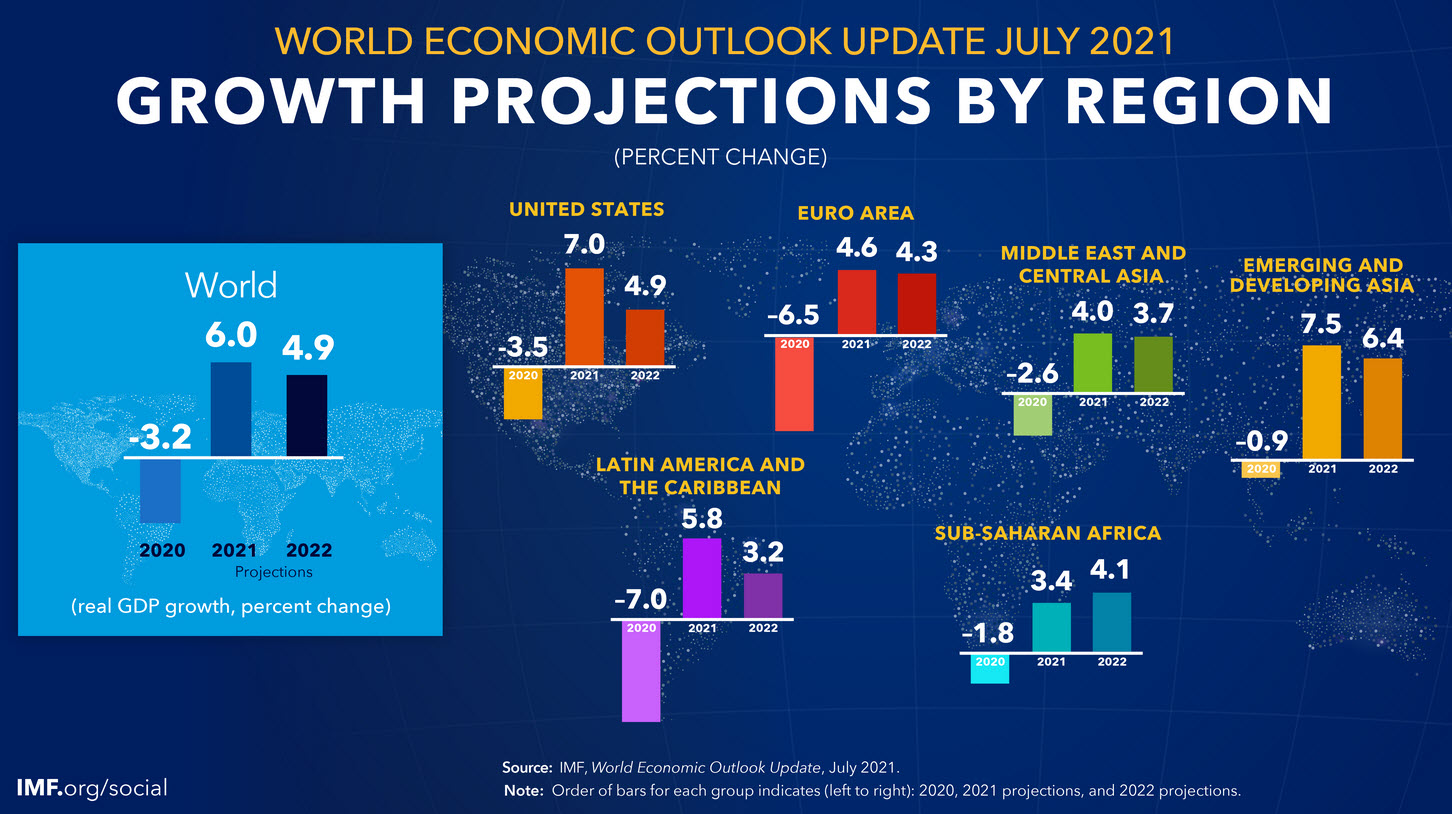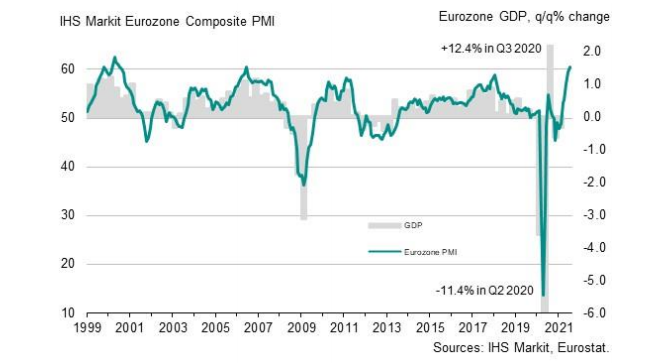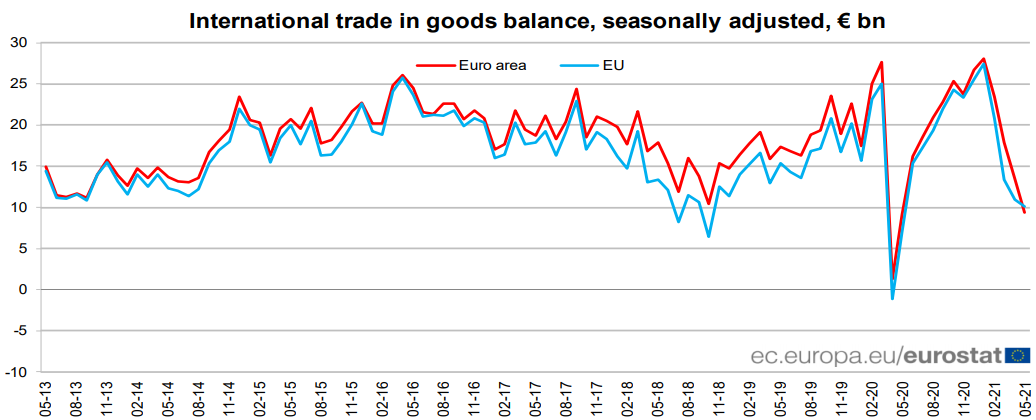China’s official manufacturing purchasing managers’ indexes for July are due on Saturday, 1 August
- at 0100 GMT
- expected 50.8
- previous 50.9
- expected 53.3
- previous 53.5

Euro area economic confidence reaches an all-time high as the upbeat mood is helped by the summer optimism. That said, the increase is a shallow one which could suggest that the indicator is nearing its peak for the time being.

Despite a recent uptick in wage growth in the United States, wages of individuals-observed 12 months apart in the Atlanta Federal Reserve’s Wage Growth Tracker-do not indicate broader pressure in the labor market. Data from Canada, Spain, and the United Kingdom show similar patterns of broadly stable wage growth this year

A solid bump in business activity with the strongest rise in over 15 years observed in the services sector. Supply chain disruptions dampened manufacturing output but overall conditions are still relatively robust to start Q3.
“The eurozone is enjoying a summer growth spurt as the loosening of virus-fighting restrictions in July has propelled growth to the fastest for 21 years. The services sector in particular is enjoying the freedom of loosened COVID-19 containment measures and improved vaccination rates, especially in relation to hospitality, travel and tourism.
“Supply chain delays remain a major concern for manufacturing, however, constraining production and pushing firms’ costs higher. These higher costs have led to a near record increase in average selling prices for goods and services, which is likely to feed through to higher consumer prices in coming months.
“The survey also highlights how the delta variant poses a major risk to the outlook. Not only have rising case numbers led to a slide in business optimism to the lowest since February, further covid waves around the world could lead to further global supply chain delays and hence ever higher prices.”
Seasonally adjusted exports were seen down 1.5% m/m while imports grew by 0.7% m/m, seeing the trade surplus shrink in May compared to April. The adjustment process continues as trade conditions are still normalising since the pandemic.


The preliminary report can be found here. No change to the initial estimates as core inflation keeps just under 1% so that might give the ECB some breathing room in pushing back against the latest rise in inflation, though the headline is nearing 2%.